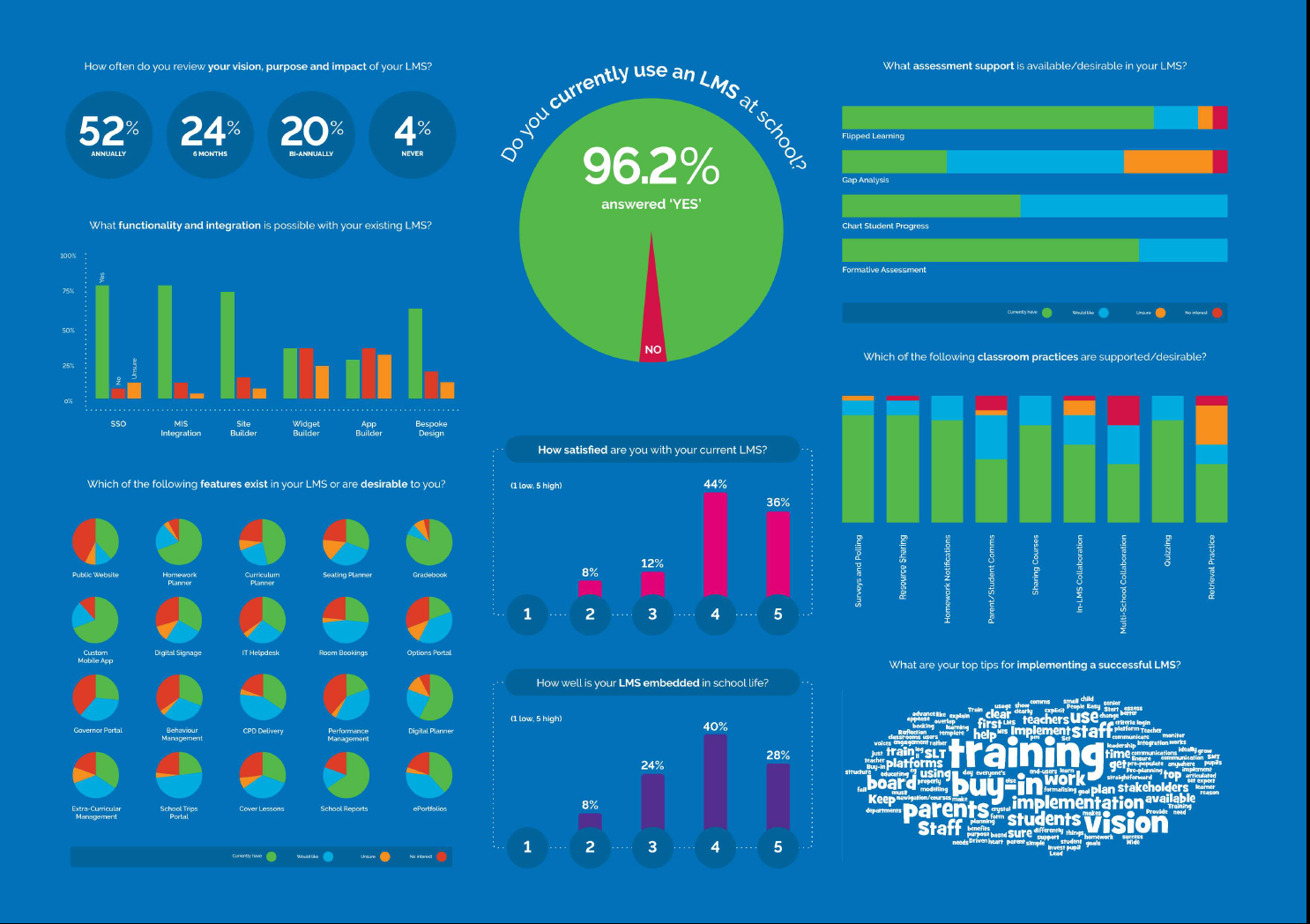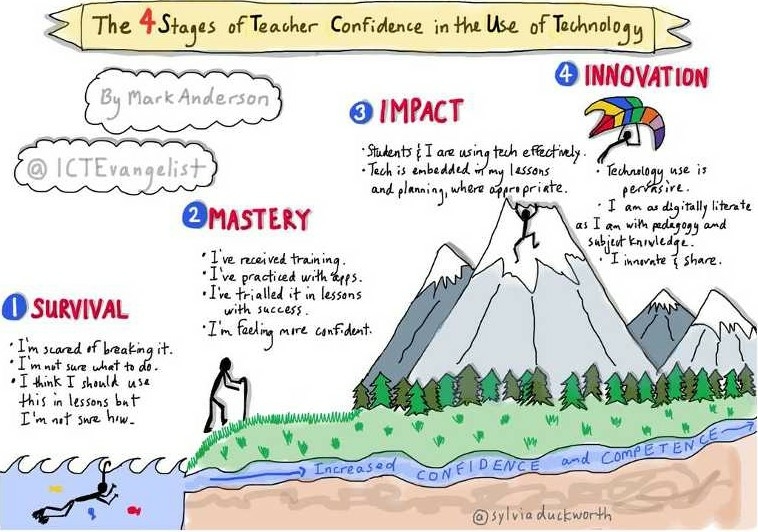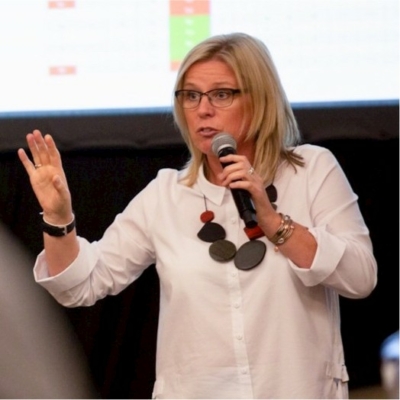The Changing face of the Virtual Learning Environment

By Mark Anderson. The Virtual Learning Environment (VLE) in its traditional form may have been widely denounced but its metamorphosis truly deserves your attention.
Schools want, no need, systems that are joined up, cost-effective, bring additional value, time-savings, efficiencies and are simple to use. No longer do they want to be shackled by systems that perform purely to a specification dictated to them by their edtech provider, Schools need freedom to change and grow and to be able to work in partnership to co-create and develop solutions that work well with all of their stakeholders and the latest technology can address this.

If VLE’s are dead — where are they now?
A Learning Management System (LMS) may sound like a straightforward rebrand but there’s so much more being offered than what you might know from your frame of reference of the VLE of old.
With a number of edTech solutions on the market. the LMS ideal is to provide support for schools as part of a digital strategy, underpinning whole-school tech use and unifying disparate tools that require various logins, interfaces and cost centres attached to each. Schools want value – not just monetary – but for the time they put into ensuring these technologies are used effectively.
With many schools citing use of several ‘free’ and paid-for solutions the concern is that people forget the ‘why’ and sometimes the ‘how’ too.
As a result, we have a much-repeated scenario of loads of tech in schools implemented without a solid plan. In the absence of structure, people tend to push in different directions, money gets tied up in multiple places and it becomes difficult to measure the impact any of it has on teaching, learning and the processes needed to support them.
The reasons for LMS failure that you already know…
When we surveyed people ahead of a session at The Brighton EdTech Summit, we asked teachers and leaders about their LMS usage and perceived value„. here’s the question that held the most interest for me:
What are your top 3 tips for implementing a successful LMS?
The answers were pretty similar to each other, revealing that most know what SHOULD happen to successfully embed an LMS in school, but many are still failing to achieve whole-school adoption and therefore not reaping the rewards of their investments.
Shared tips:
Training
Training came up highest in our responses and rightly so! Although a great LMS should be intuitive, this is never a substitute for training, In a school there will be people at all levels of capability that need reassurance and confidence. it’s always a good idea to train a number of champions from the outset to maintain interest. My chart (1.0) on the topic of teacher confidence and competence always helps me assess how best to support. plan and deliver an effective level of training. Focusing attention on the bell curve of users and their confidence and competence utilising technology in the classroom.

Technology is nothing without the people that believe in the outcomes it can bring, something which was recognised by the majority of survey participants. If the school hasn’t decided what success looks like, it’s hard for an edtech supplier to demonstrate how their product can help. This vision should already be well-embedded within school, clearly articulated, shared regularly and repeated across the board.
Team
A school has a number of stakeholders to satisfy and a digital strategy cannot work without the whole team., Involve staff, students, parents and governors from the vision through to the action plan, Objections will always come thick and fast with any change, but resolutions can be found more easily if everyone understands the ‘why’, If you’ve suffered failed implementations in the past, it is highly likely that one party or another didn’t feel fully consulted, Engaging with and involving your stakeholders in a consultative process is a key aspect in bringing colleagues with you on your journey. It isn’t about having all of the answers but sharing the vision that brings people with you when they buy-in to what you’re aiming to achieve.
These were the headlines picked from the survey respondents, but I’d add the following advice to complete the circle:
Environment
Getting the right environment for people and tech to conveniently coexist is an important one. If people can’t easily access the technology they need, they have a valid reason not to use it. This doesn’t have to be an elaborate ICT suite, but accessible spaces need to be prioritised, Infrastructure too is key to success and without a solid foundation upon which to place your strategy. you are most likely doomed to failure. Environment doesn’t just relate to spaces or technological infrastructure. Behaviour for learning, high quality teaching and learning, strong processes for WAGOLL are all elements that form the foundations of a good digital strategy, Adding technology to a school that is already struggling with some of the things mentioned here will only amplify the issues. Ensuring you have the right conditions for success before any implementation is key in order for your strategy to succeed.
Sustainable
A digital strategy will definitely involve a financial investment – which could be facilitated by a funding boost or prioritised within the school budget. It is important that financial expectations are realistic and linked to the overall strategy and aren’t just based on what you can afford.
Measurement
You can only know ‘what good likes like’ if outcomes are measured against original objectives. Do you expect the tech to reduce workload, improve attainment or introduce efficiencies? If you’re not specific at the outset, you could have been using a solution Which was never fit for purpose, Measure regularly and work with your edtech provider to ensure you get the outcomes required.
Deb Kellsey Millar

Group Executive Director of Digital Learning Technologies at The TEC Partnership
During Mark’s workshop, Deb reinforced Mark’s point about the importance of measuring your success and impact. She said how at her College how important it had been for their journey to make sure that you review each part of technology used within the classroom as part of your overall digital strategy.
A well-known quote of hers is “what doesn’t get measured, doesn’t get done”.
Further to this, Deb continued to express the importance of learners using technology within the classroom to prepare them for industry and life: “Whether you become a hairdresser, plumber or lawyer; theory is great but do you consider cognitive skills such as social skills, social awareness and human interaction and embrace the technologies and tools that learners use outside of the classroom?
It’s not about making life difficult. it’s about engaging learners in ways they may not have been engaged before.”
Therefore as part of your EdTech strategy, think about the right tools to give your learners every opportunity to learn and prepare them for life outside of the classroom
Need more information about implementing a digital strategy?
Come along and join me, Mark Anderson, at Bett, Thursday 23rd on the Frog Education stand – NK60 – for a live session, where you’ll also be able to receive a free copy of my recent publication ‘A Guide To Creating A Digital Strategy’, co-authored with Al Kingsley, MD of NetSupport, RSC board member and Chair of a large MAT.
Multi-award winning and award nominated blogger, known as @ICTEvangelist, UK Blog award winner of Education blog of the year 2015. Author of the Amazon education chart topping “Perfect ICT Every Lesson”. Contributing author of “There is Another Way. The Second Big Book of Independent Thinking” and “100 ideas” by Ross Morrison-McGill amongst many other books. Independent Thinking Limited associate.
More than 20 years experience teaching and a leader of Digital Learning who developed the successful iPad 1:1 at the Apple Distinguished Clevedon School. Subsequent Assistant Headteacher at Sir Bernard Lovell School leading on e-learning, iPad 1:1, Head of Computing and network manager. Former Head of Faculty, Head of Department, Governor and Lead Teacher across the local authority.
